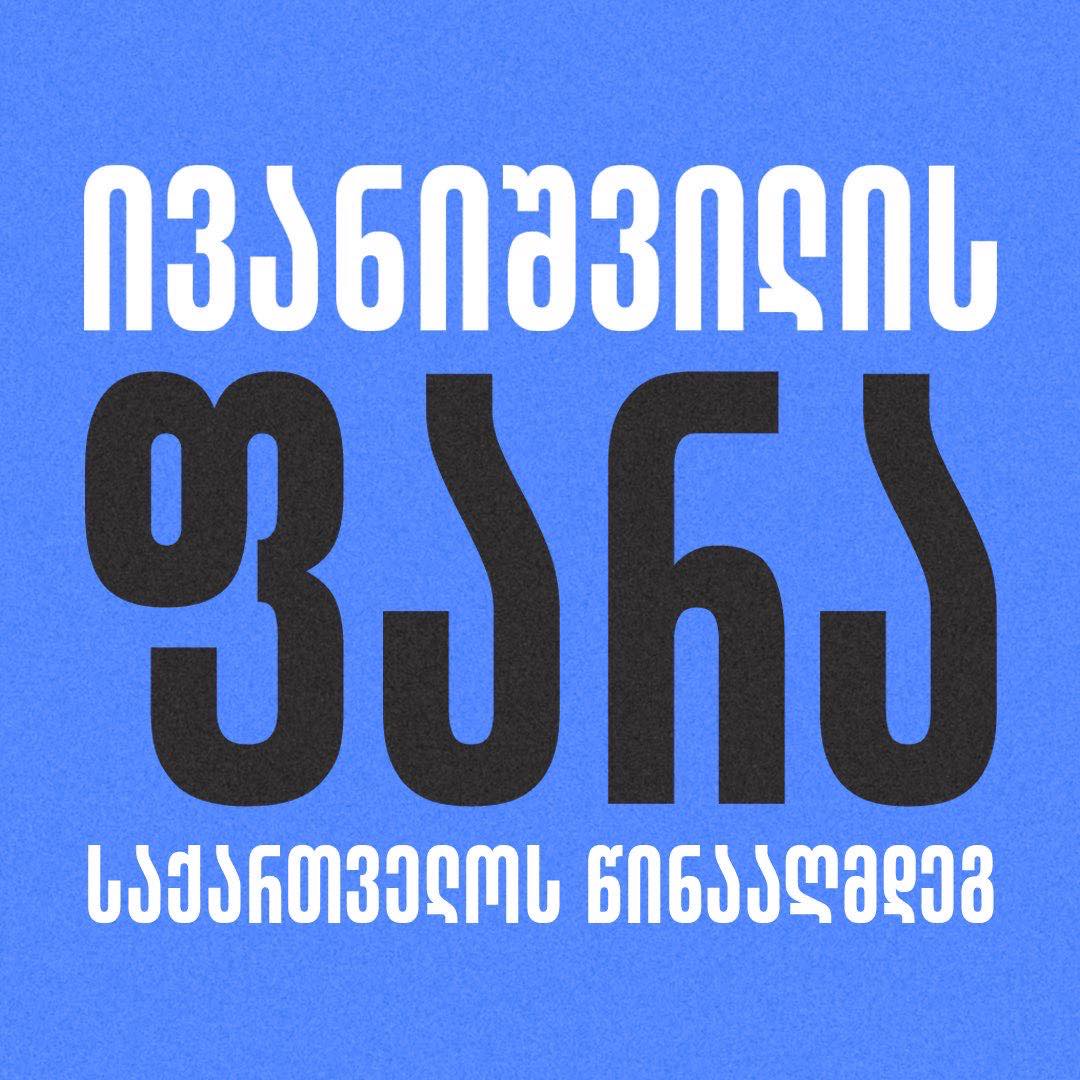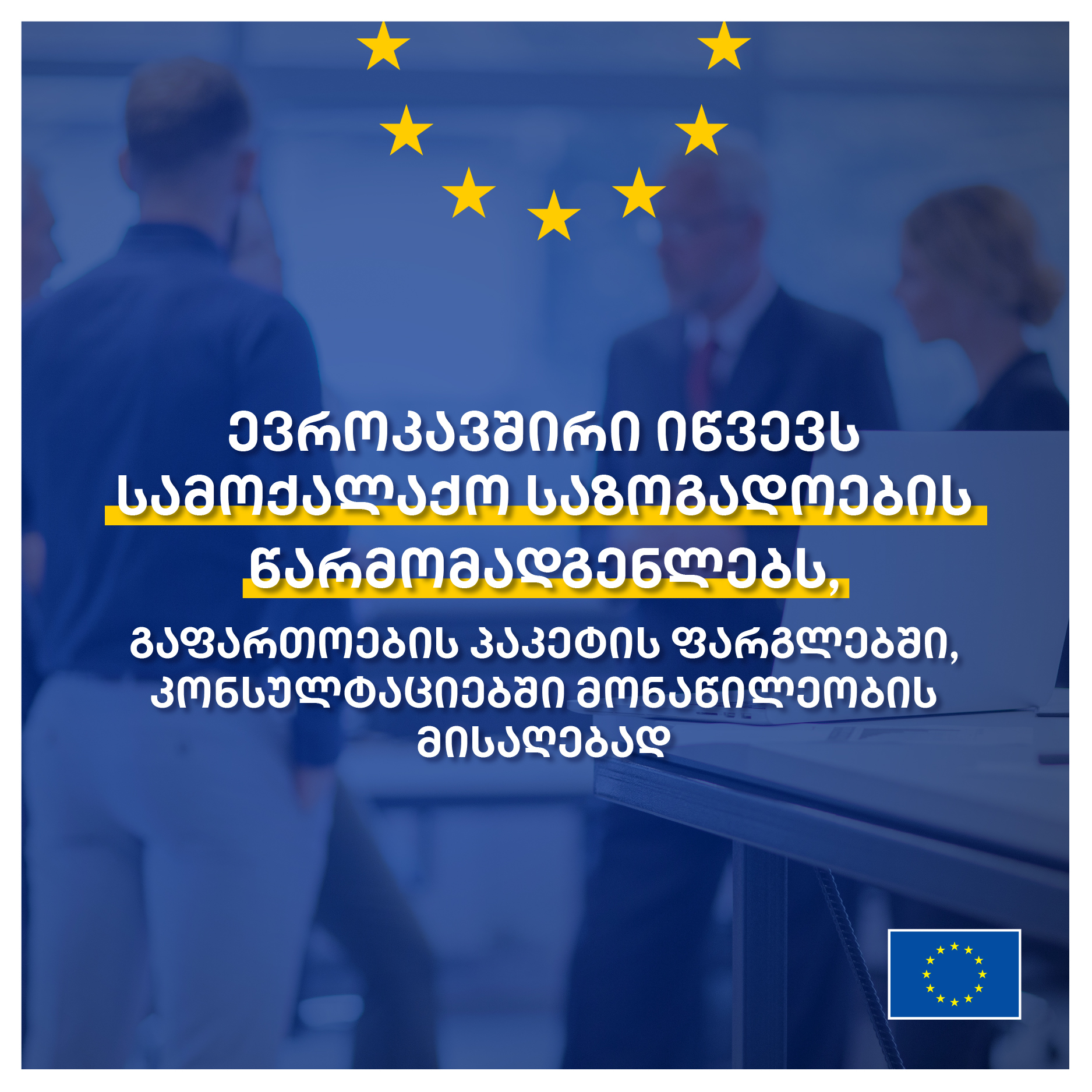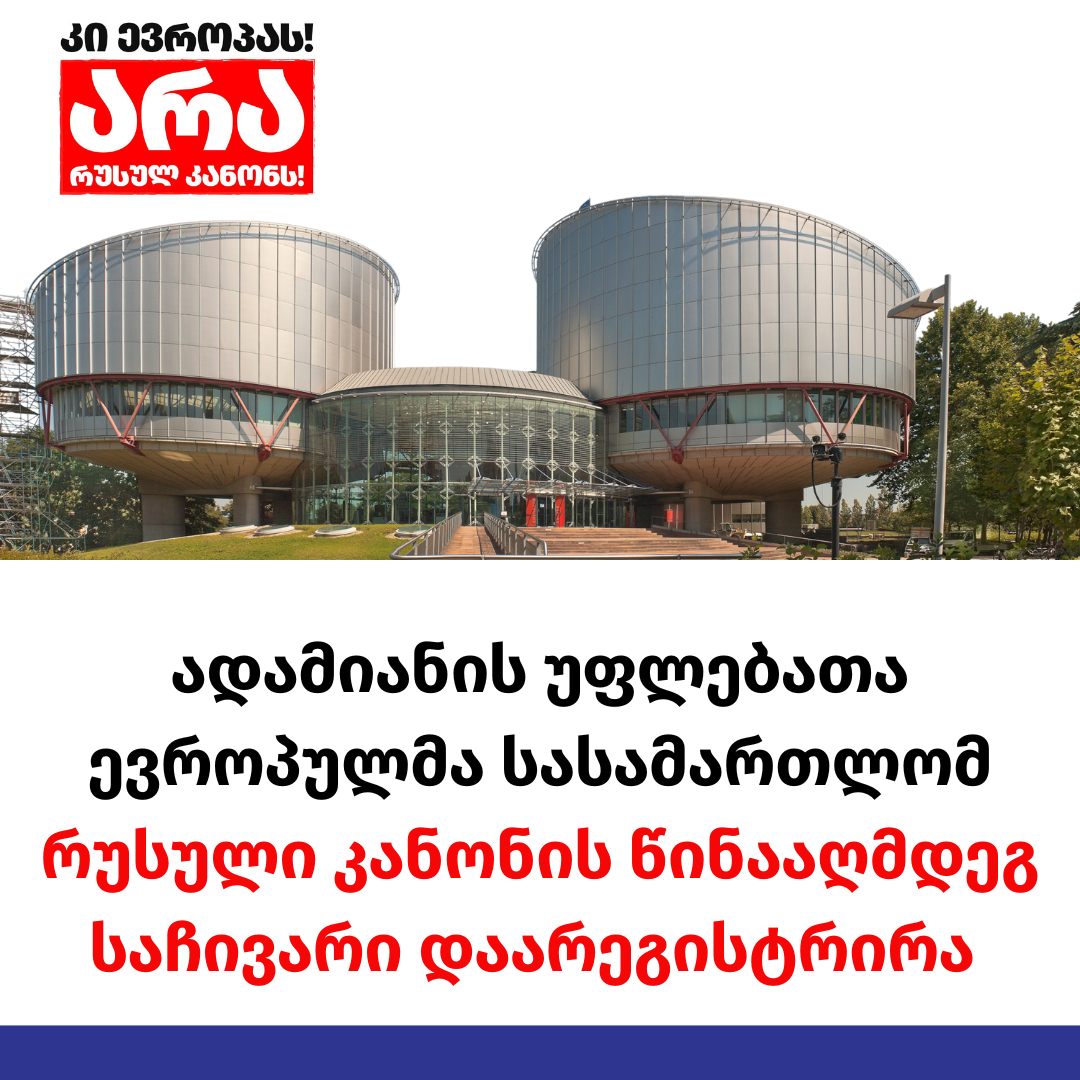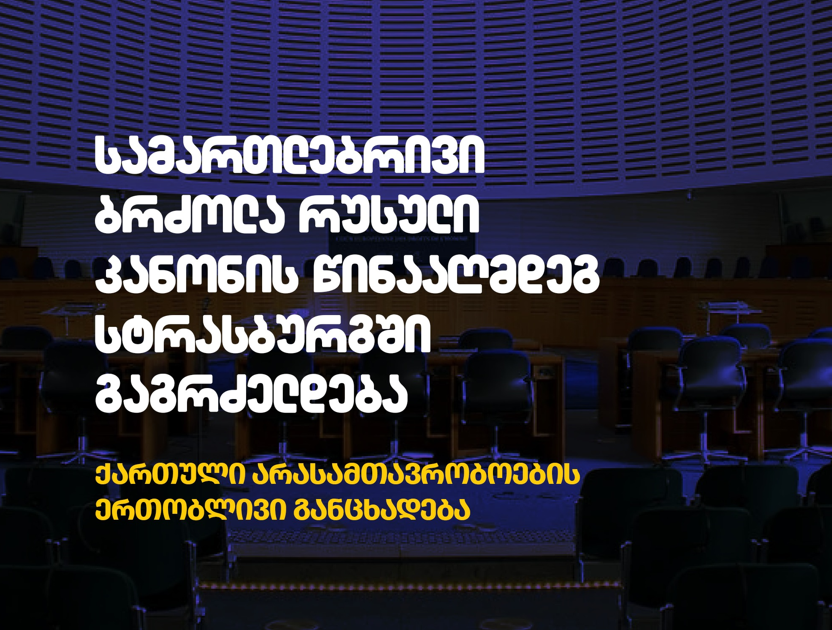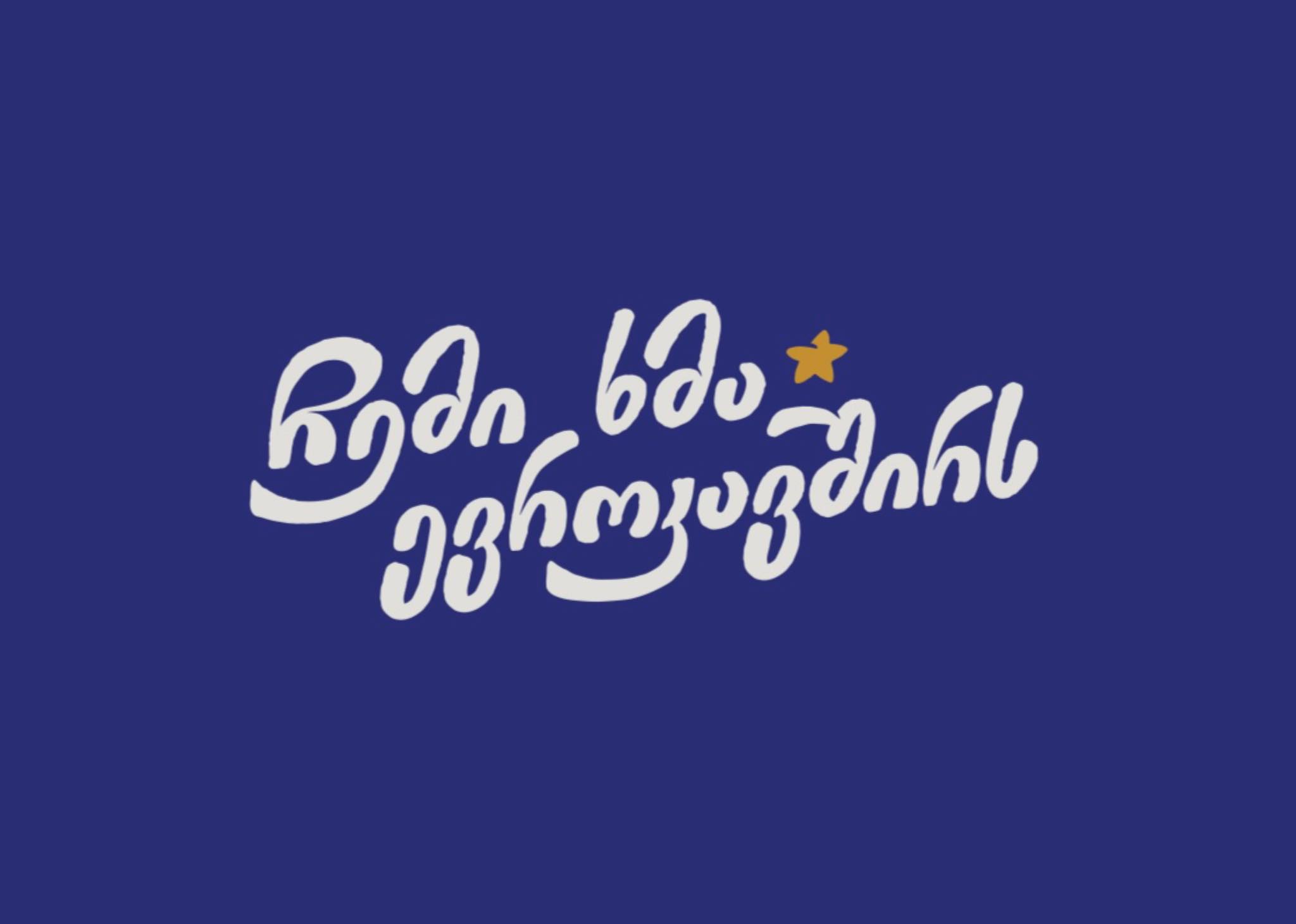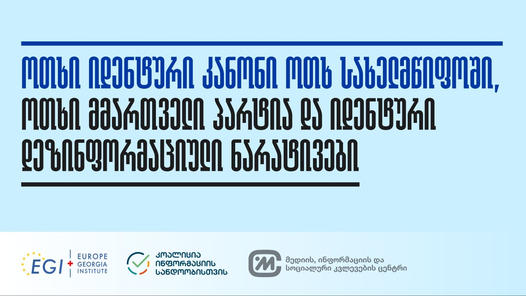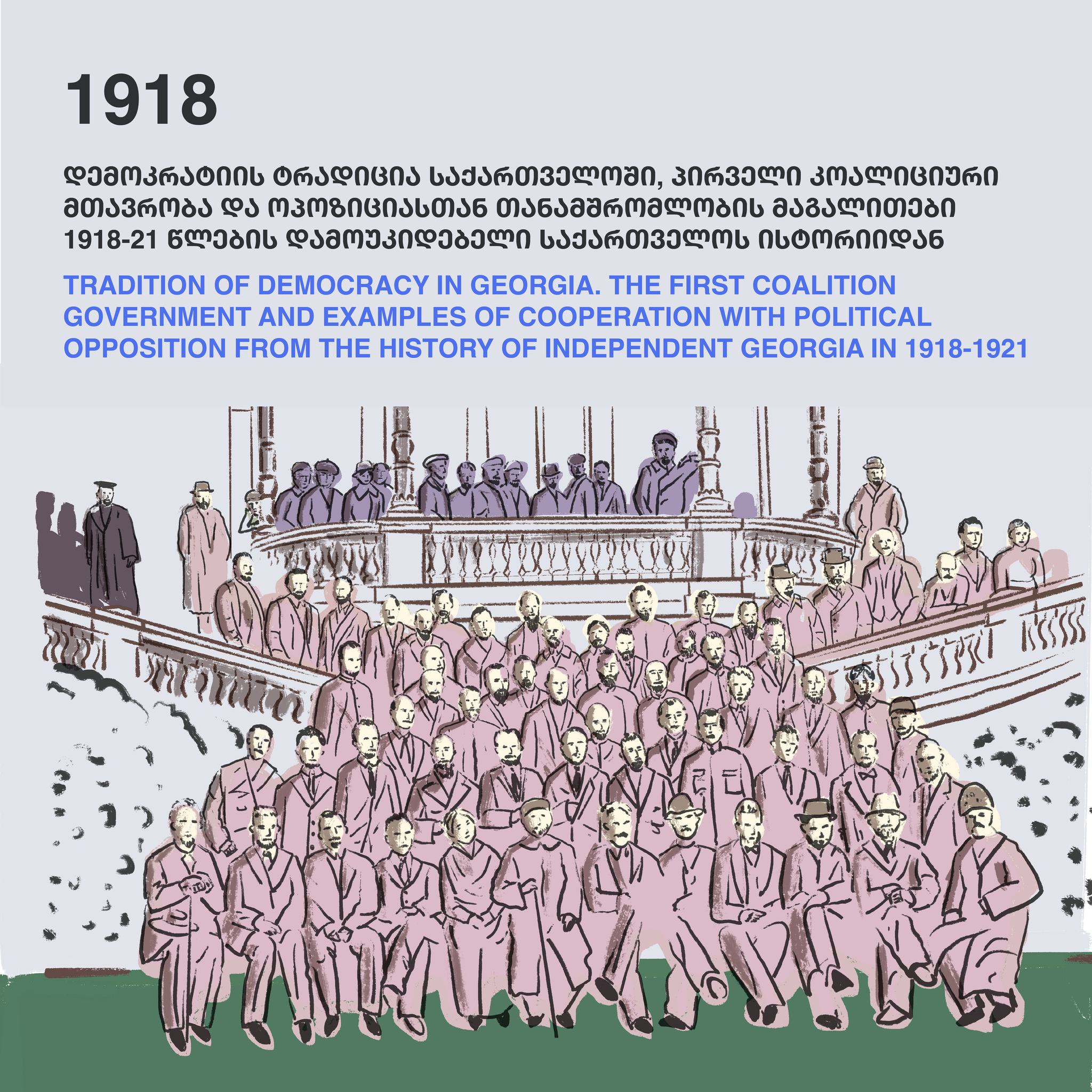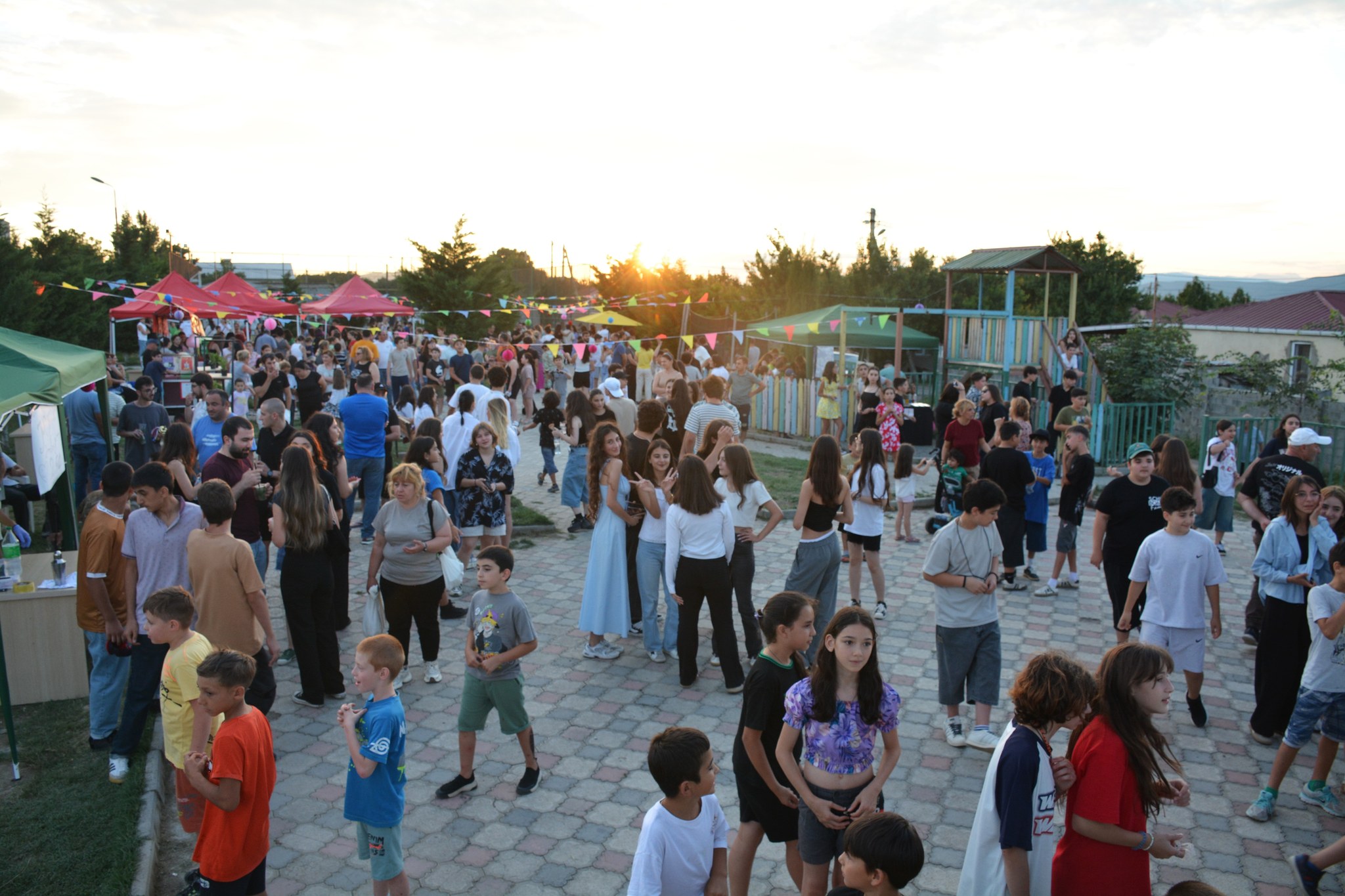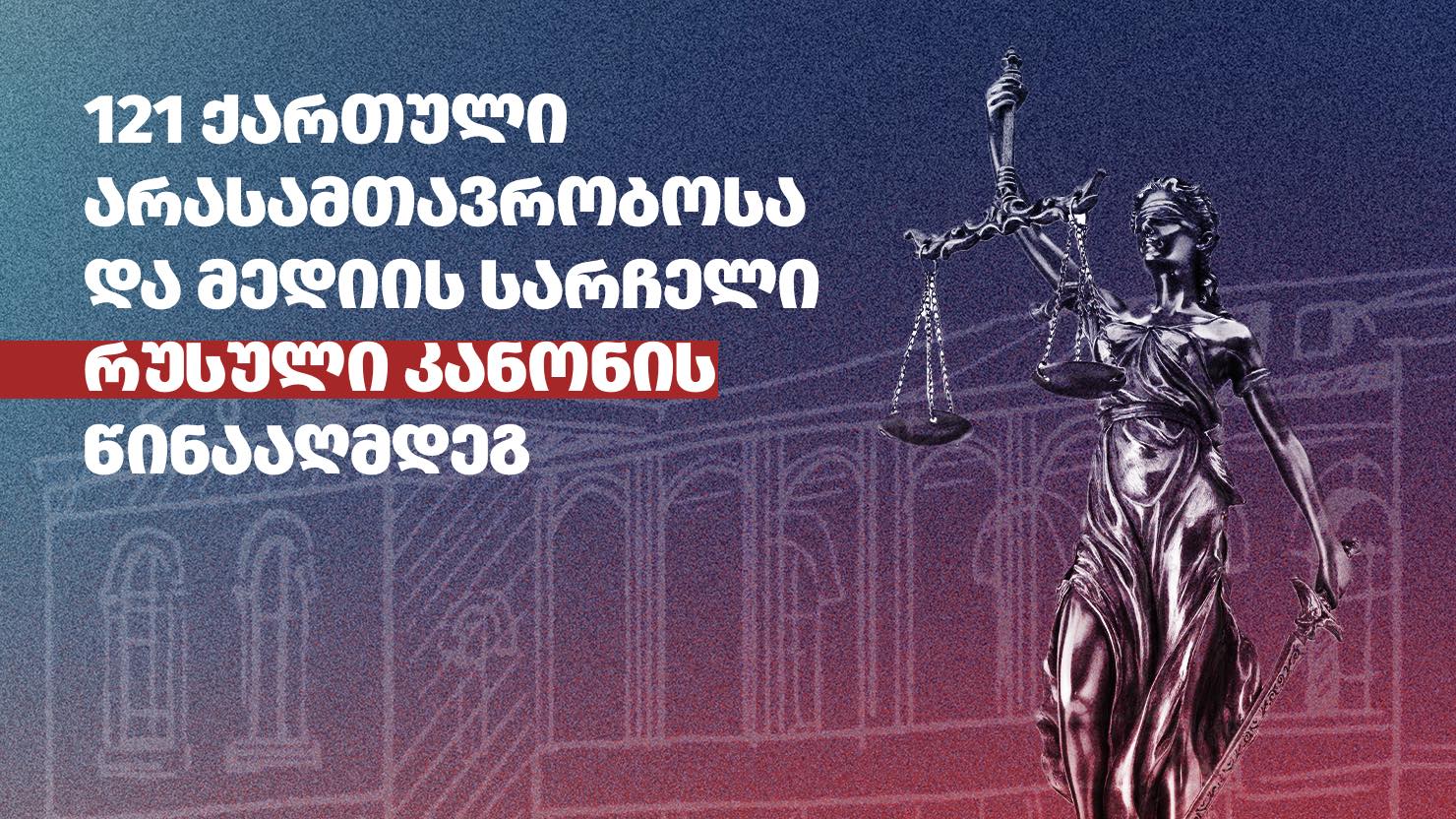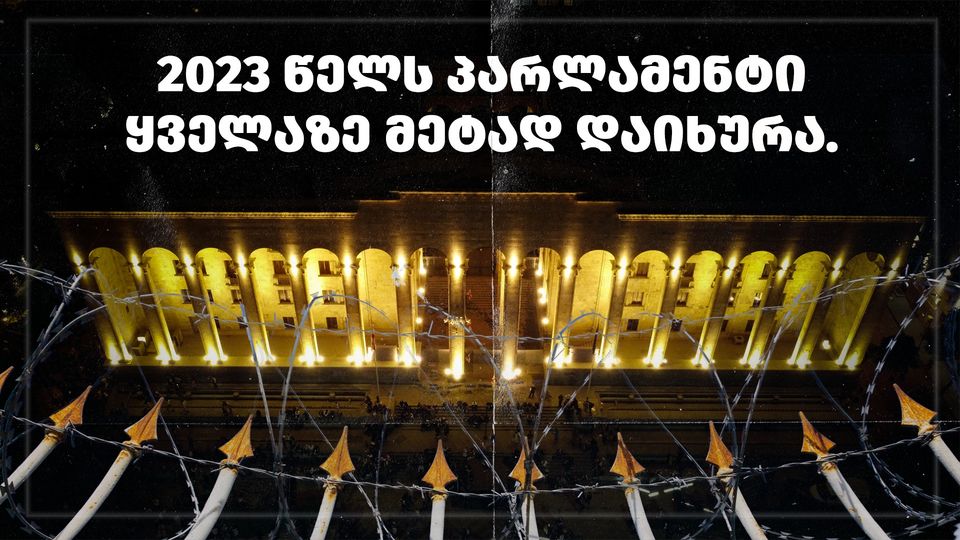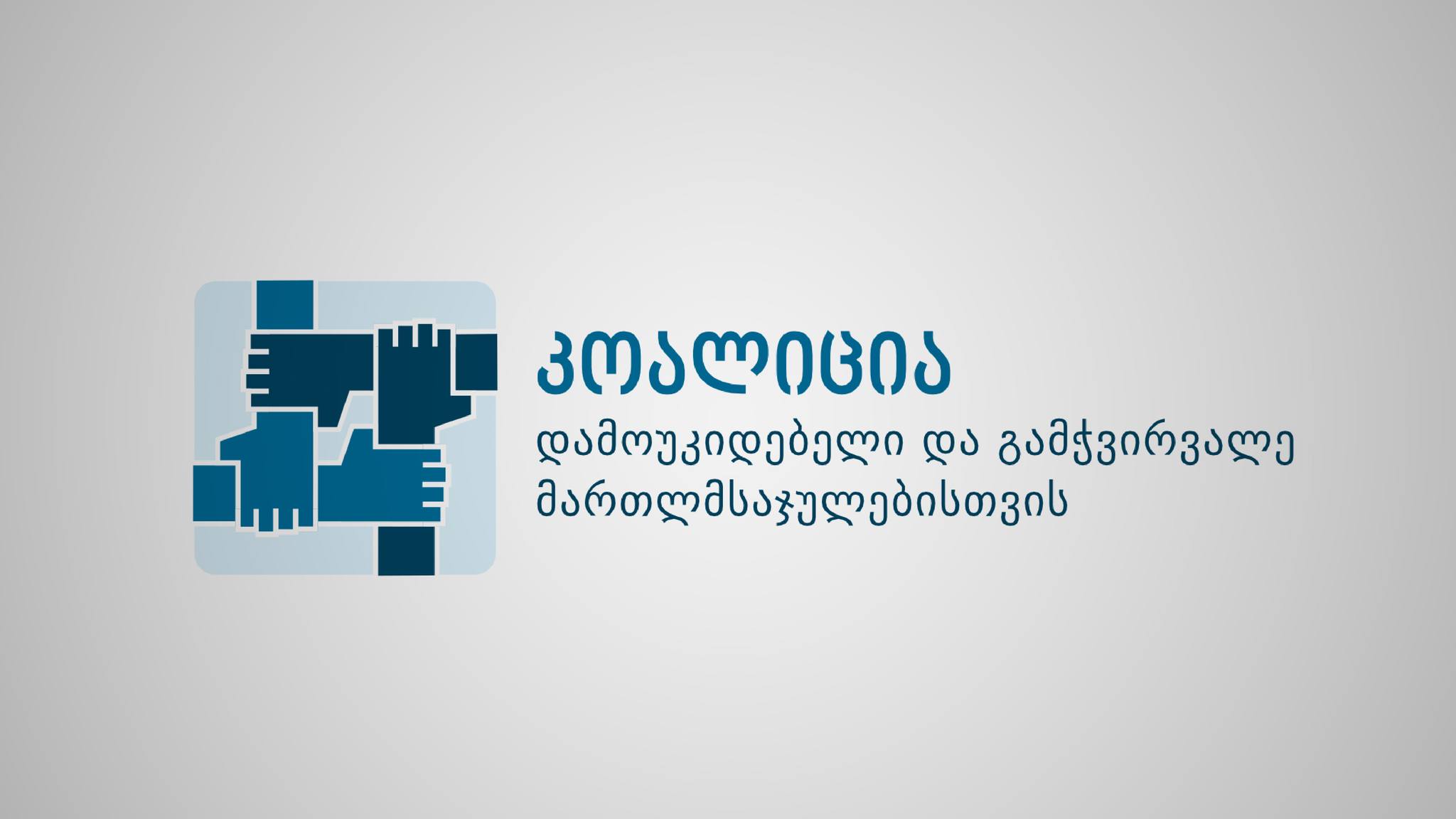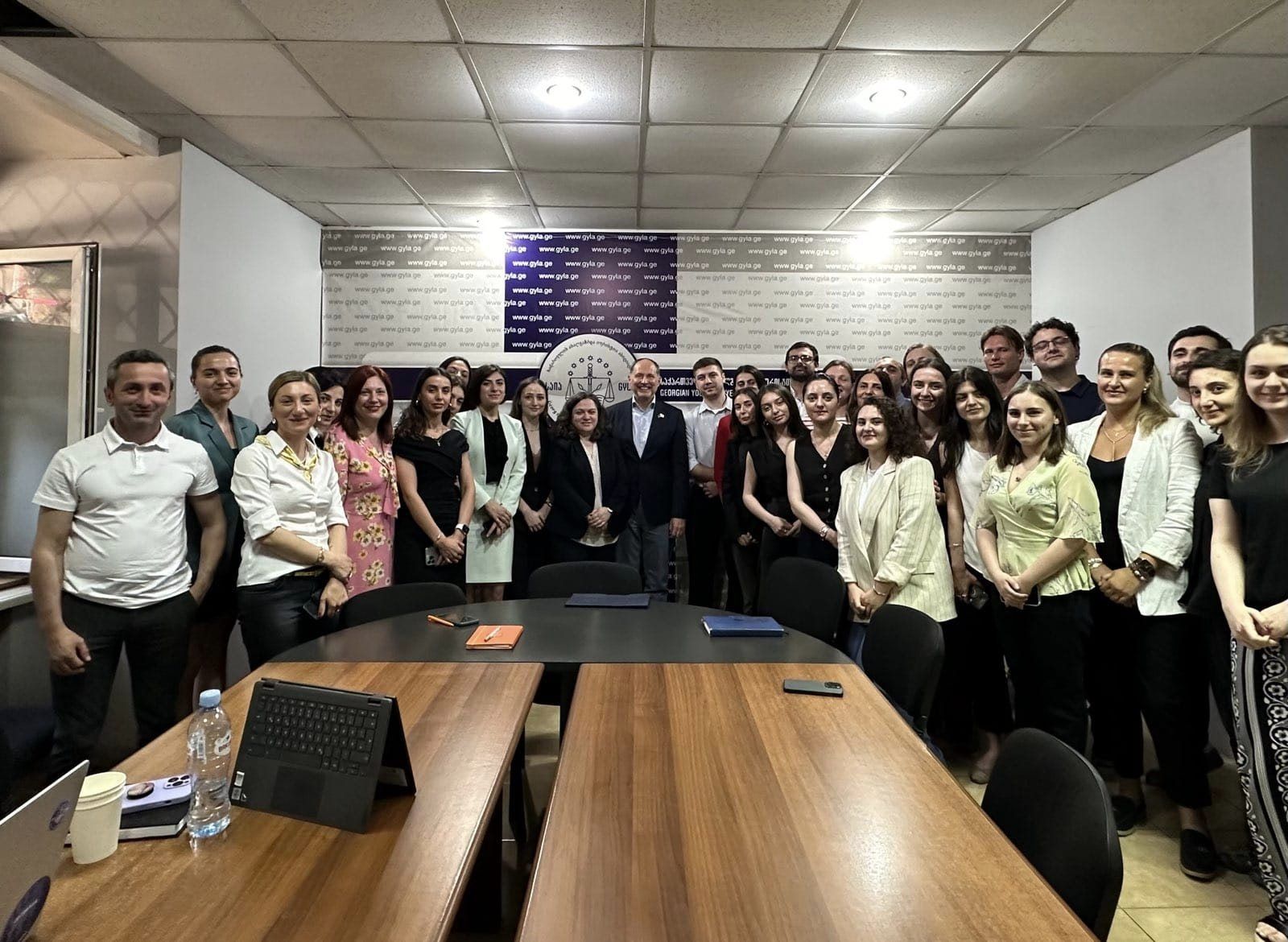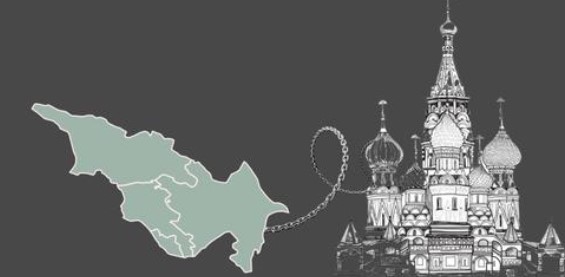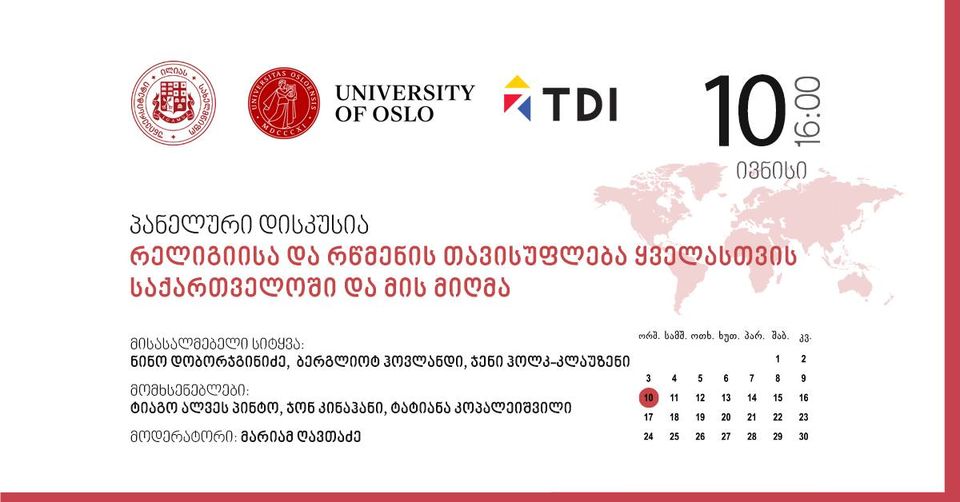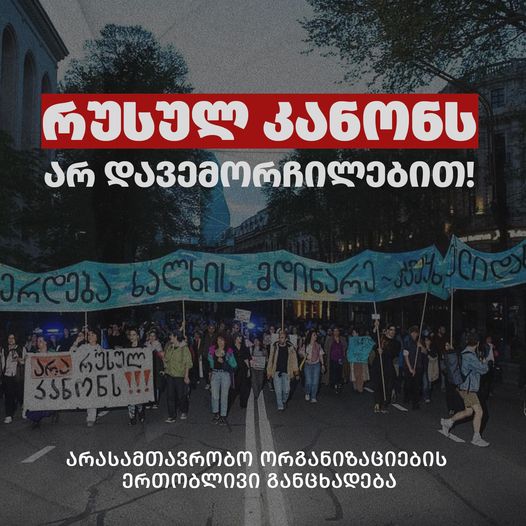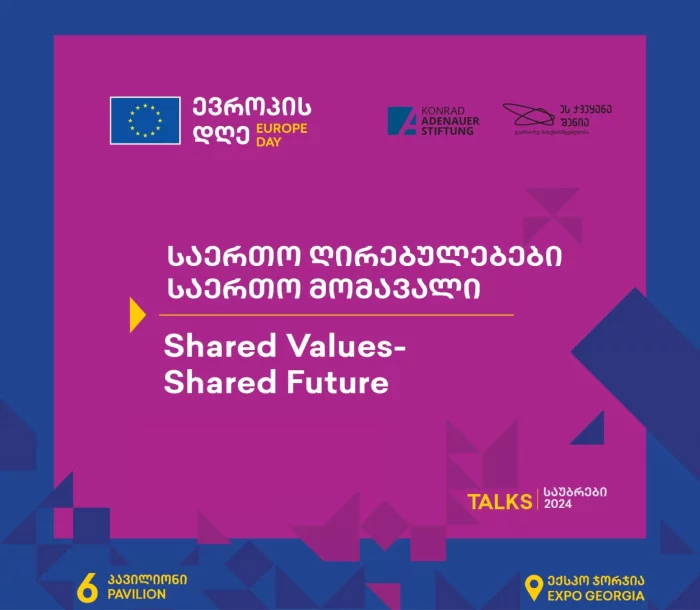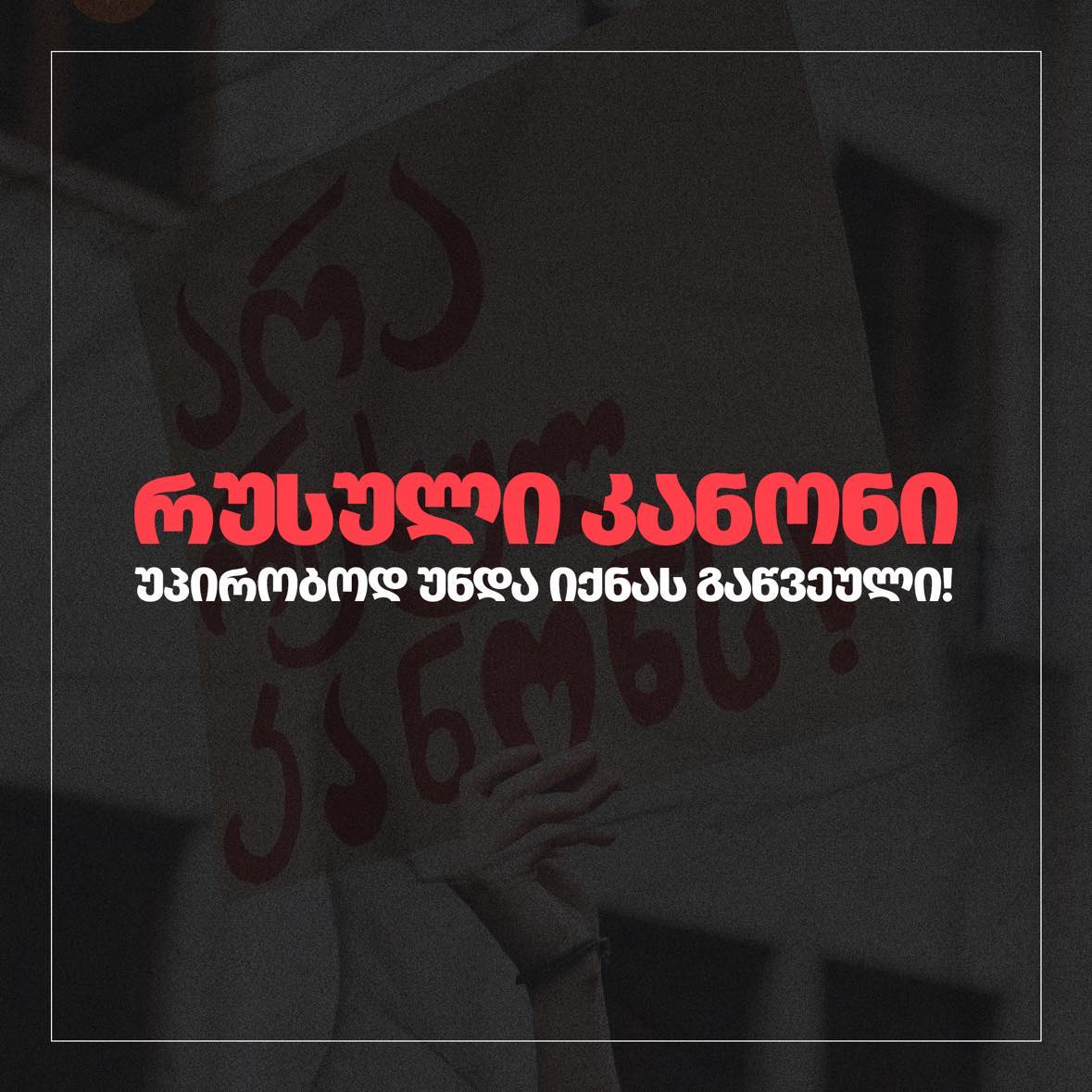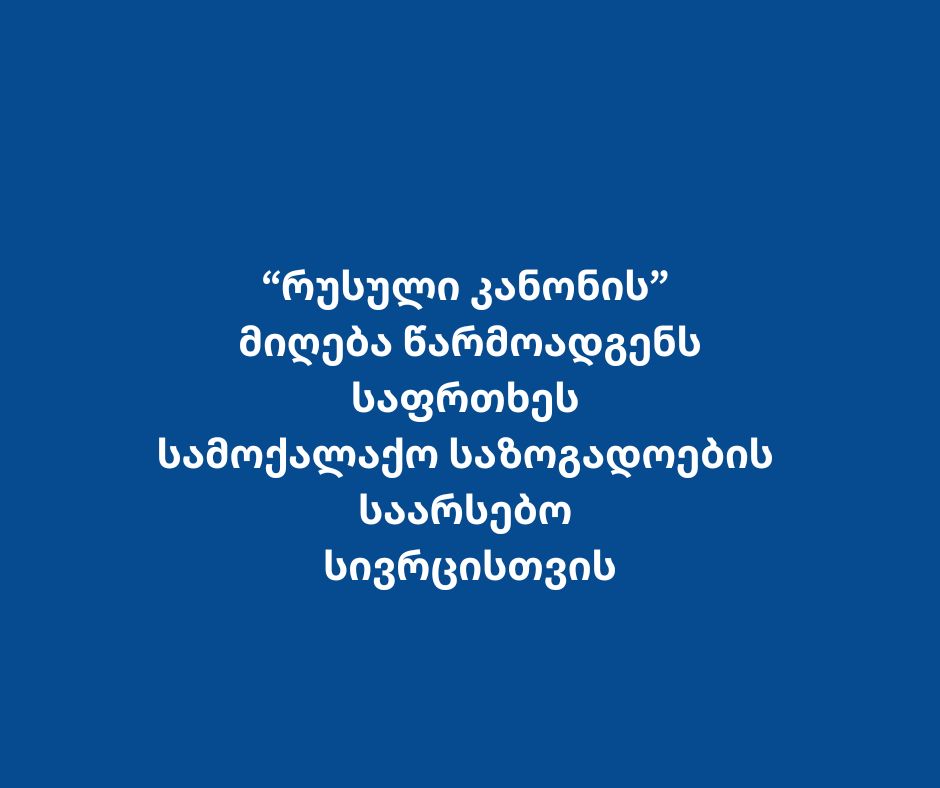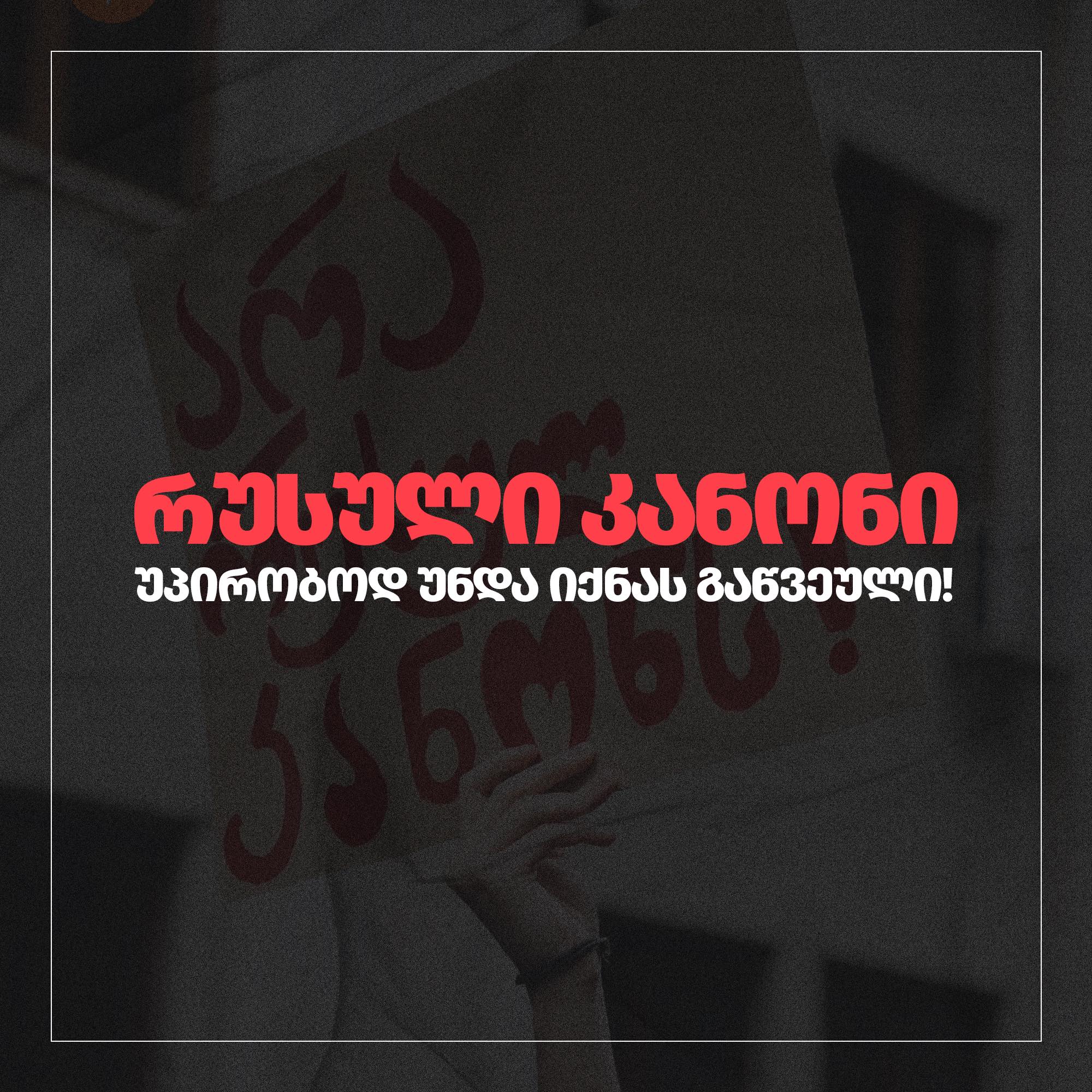News
The European Court of Human Rights has informed GYLA that it has begun examining the application lodged against the “Russian law” and has asked the state relevant questions. The court has started considering the case in relation to all the articles that the applicants have complained about.
As is known to the public, on 17 October 2024, 16 media organizations, 120 non-governmental organizations, and 4 individuals addressed the European Court of Human Rights against the “Russian Law” and its severe consequences.
More…
Source: GYLA
More than 100 NGOs signed a statement.
„For the third year in a row, Georgian civil society has been telling Ivanishvili that we are not going to live and work under Russian laws. Russian law, in any form, will never be Georgia’s choice. We, the signatory Georgian independent non-governmental and media organizations, remain faithful to the Constitution of Georgia and our mission—to serve the Georgian people“.
More…
Source: csf.ge
In the framework of the Enlargement Package, the EU Delegation to Georgia is preparing the Annual Report 2025 on Georgia. The EU is inviting civil society organisations, international organisations and development partners who play a key role in Georgia’s European Integration process to share written contributions for our analysis and in-depth assessment.
More…
Source: eu4georgia.eu
Georgian NGOs, are starting a new phase of the fight against “Russian law.”
The European Court of Human Rights has registered a lawsuit of 16 media organizations, 120 civil society organizations, and four natural persons.
More (geo)…
Source: GYLA
Georgian NGOs, are starting a new phase of the fight against “Russian law.” "On October 17, we will appeal “Russian law” and its dire consequences to the European Court of Human Rights on behalf of 16 media organizations, 120 civil society organizations, and four natural persons.
Russian law not only aims to restrict civil society and the media but also serves to divide all citizens from each other and suppress critical voices. The applicant organizations work on such public problems as environmental protection, assistance for persons with disabilities, protection against violence against women and children, judicial reform, the fight against corruption, investigative journalism, etc.
We, applicant organizations, will argue on violations protected by the European Convention on Human Rights – the right to freedom of assembly and association (Article 11), freedom of expression (Article 10), the right to respect for private and family life (Article 8 ), discrimination (Article 14), the right to an effective remedy (Article 13) and the scope of limitation on use of restrictions on rights (Article 18).
Fighting independent organizations with Russian methods not only violates fundamental human rights but also undermines the unwavering choice of the Georgian people regarding integration into the Euro-Atlantic structures. Unfortunately, the constitutional obligation, which obliges the state bodies to protect all these civilizational choices, is violated by the governmental bodies while the Constitutional Court refuses to fulfill its duty.
Despite the failure of the Constitutional Court to fulfill its obligations, our fight against Russian law continues, and it will inevitably end with the unconditional victory of the Georgian people.
No to the “Russian law”!
Yes - to the European Union!"
source: IDFI
The observation mission “My Voice”, which unites 30 non-governmental organizations, is preparing for an unprecedented large-scale observation mission of the parliamentary elections, the purpose of which is to promote fair elections and protect the votes of Georgian voters. Our observers will monitor the elections both in Georgia and in precincts opened abroad.
They have published the activities of the observation mission so far.
More…
Source: csf.ge
The Information Integrity Coalition published a publication – „Four Laws in Four States, Four Ruling Parties and Identical Disinformation Narratives".
Kyrgyzstan, Republika Srpska in Bosnia and Herzegovina, Georgia, and Slovakia—almost simultaneously launched or continued efforts to adopt four similar pieces of legislation. „Identical and powerful disinformation narratives accompanied the entire process of enacting "foreign influence transparency" legislation in four different states“.
more ...
source: The Information Integrity Coalition
The Economic Policy Research Center (EPRC) presents series of outstanding stories that remind us about tradition of Georgia’s uninterrupted march towards Europe.
1918 – Tradition of Democracy in Georgia, the first coalition government and examples of cooperation with political opposition from the history of independent Georgia in 1918-1921.
Georgia declared its independence on May 26, 1918. The first government of the country was a coalition government consisting of Social-Democrats, Socialist-Federalists, Socialist-Revolutionaries, and National Democrats.
More…
Source: eprc
Mtskheta-Mtianeti. On July 21, within the framework of the "Volunteer Festival in Tserovani" project, a summer volunteer festival was held in the central square of the Tserovani settlement. The event featured interesting tournaments, mini-championships, cognitive quizzes and other diverse activities. Illusionist Avtandil Tskitishvili took care of the mood of the guests. Local entrepreneurs had the opportunity to exhibit and sell their products. The evening was decorated musically by folk group "Kartuli" the specially invited band "Killages" and a DJ. The event was organized by 7 young people from Tserovani, who turned the idea into reality and won the volunteer initiative grant competition, giving the local population an unforgettable day.
The project "Volunteer Festival in Tserovani" is implemented with the support of the Education Development and Employment Center within the framework of the European Union (EU) and Konrad-Adenauer-Stiftung funded project “Civil Society STAR Initiative."
The project is implemented by a consortium led by the Konrad Adenauer Foundation (KAS) together with the following non-governmental organizations – Center for Strategic Research and Development of Georgia (CSRDG), Civil Society Institute (CSI), Counseling and Training Center (CTC), Education Development and Employment Center (EDEC) and European Institute of Policy (IEP).
Source: Education Development and Employment Center
121 Georgian non-governmental and media organizations continue their legal battle against the “Russian law”, for which we will appeal to the Constitutional Court. Along with the lawsuit, as a temporary measure until the court makes a final decision, we also demand to suspend the implementation of the unconstitutional provisions of the law.
More…
Source: transparency.ge
Tbilisi. TI published an analytical report – „Performance Assessment of the Parliament 2023“.
„In 2023, the Parliament became a closed institution. It transformed into an even more inaccessible and non-transparent institution for representatives of civil society and critical media. The denial of access to enter the Parliament and attend committee sessions was made without providing specific justification, citing only the general security regulations of the Parliament. The Parliament has ceased the release of public information that could potentially be used as grounds for criticism against MPs.“
More…
Source: transparency.
Tbilisi. The festival season is underway! More music festivals in Georgia go green merging entertainment with the sustainable development agenda.
With support from UNDP Georgia, Norwegian Embassy in Tbilisi and CENN, the popular eZo Festival introduced waste recycling practices, replaced plastic bottles with glass, and installed glass collection bins throughout the grounds for easy recycling.
This cooperation is part of UNDP’s Norway-funded project ‘Leadership, Equality, Advocacy, Democracy.
More…
Source: UNDP
Tbilisi. The Coalition for Independent and Transparent Judiciary reacts to the election of three new Supreme Court members by the Georgian Parliament, viewing it as another step damaging the European integration process.
"Successful European integration and the realization of necessary democratic reforms, including fundamental judicial reform, represent an unwavering will repeatedly expressed by the overwhelming majority of Georgian society. The ruling party and all branches of the government must respect this mandate."
more...
source: transparency.ge
Tbilisi. The EU Ambassador to Georgia, Pavel Herchinsky, visited the GYLA office. The ambassador met with GYLA staff and announced support for their work. This visit is particularly significant following the adoption of the "Russian Law" and emphasizes the EU's unwavering support for GYLA and civil society activities. The ambassador expressed hope that our country will continue to progress towards Europe. He also discussed increasing support for Georgian civil society from the European Union.
Source: GYLA
Tbilisi. The Rondeli Foundation published Giorgi Pachuashvili's blog - RUSSIA’S PLAN TO DOMINATE THE SOUTH CAUCASIAN REGION – GEOPOLITICAL IMPLICATIONS OF THE RUSSIAN LAW.
"What remains to be answered is if the “Russian Law” is part of an elaborate plot by the Kremlin to dominate the South Caucasus by imposing and strengthening its grip on Georgia in a similar manner to Belarus, and by using the factor of opposition in Armenia to prevent its Western path".
More…
ource: The Rondeli Foundation
On June 10, at 16.00 pm, the Tolerance and Diversity Institute (TDI) and the Norwegian Centre for Human Rights under the University of Oslo, in partnership with the Ilia State University, have the pleasure of inviting you to the public panel discussion: Freedom of Religion or Belief for All in Georgia and Beyond.
Time: June 10, 16.00 - 18.00
Location: Ilia State University, Center for Advanced Studies (3 Giorgi Tsereteli str., building S, room 800)
More…
CSO's Statement: "55 days ago, the government broke its word to the Georgian people and re-initiated the “Russian law”. By that, it aimed at cleavaging the civil sector, but encountered an unprecedented unity and unflagging confrontation. The Georgian people are strong and will be in defending our own European future and will never ever get along with living under the boot of Russia".
more...
source: csf.ge
The EU is based on the values of peace, dignity, democracy, human rights, rule of law. These values resonate deeply with the people of Georgia.
This is why there is such a strong support for Georgia's integration to the EU. At the Europe Day Talks, panelists exchanged on what defines our shared values and how our shared future should look like.
source: EU
CSO’s Joint statement: On May 14th, the majority members of the Parliament of Georgia acted against the national interests of the Georgian people and the constitution by passing the Russian Law in the third reading. This attempt to establish Putin's rules in Georgia is a betrayal of all our ancestors and compatriots who fought and are fighting for more than two hundred years against the Russification of Georgia. Before the draft law condemned by the entire international community becomes a law, the veto of the president remains, which the parliament must not overcome.
We declare once again that the Georgian people will not accept Russian laws, violent rule and separation from the Western world. We fully share the position of the President of Georgia that it is impossible to improve this law and the statement of the European Commission, according to which the law should be recalled. The law is no longer just a legal text, but has become a symbol of the government's violence against the people, intimidation and betrayal of the country. The legal consequence of deterring this violence and changing the western vector will be the personal financial sanctions that will be imposed on those and their family members who put personal interest above the country's constitution.
The will of the Georgian people is unwavering. Our ship is headed for Europe. We repeat once again - the government must withdraw this law unconditionally.
Yes to Europe!
No to the Russian law!
more...
On May 14, alongside widespread protests, Georgia's Parliament passed the controversial "Russian law" in its third reading. This step undermines the living space of civil society and exacerbates political polarization within the nation.
The draft law received approval from 84 MPs, with 30 members of the parliamentary opposition voting against it.
The parliamentary majority's approval of the draft law came after extensive protests in the country and warnings from Georgia's foreign partners. These partners urged the governing team not to proceed with the decision, emphasizing its contradiction to the wishes of the Georgian people and its hindrance to Georgia's European integration. On May 13, while visiting Georgia, the chairman of the foreign affairs committee of the German Bundestag, Mikhail Roth, expressed his concerns about the country's European integration. He remarked that he "could not see a chance for a bright future for Georgia if the government did not withdraw this law". Prior to that, on May 12, over 120 Georgian civil society organizations reiterated their call for the withdrawal of the draft law through a collective statement.
It is significant that the period from the adoption of the draft law in the second reading until today is characterized by the arrests of the participants of protest actions, repeated facts of physical punishment, verbal abuse and threats. It's noteworthy to mention the political assaults directed at individuals involved in protests against the draft law, as well as the menacing and offensive anonymous calls made to citizens from phone numbers registered both in Georgia and abroad. Additionally, there have been instances of leaving graffiti and posters containing hate speech at the premises of civil society organizations, media outlets, or individuals' residences.
As per the procedure, the Georgian Parliament has up to 10 days to forward the approved law to the President of Georgia for signature. Subsequently, the President has a 2-week window after receiving the law to either sign it or exercise the right of veto, sending the law back to Parliament with detailed explanations. The law returned with reasoned comments is then deliberated upon in a plenary session of the Parliament and passed in a single reading.
It should be noted that the Prime Minister of Georgia, Irakli Kobakhidze, announced on May 10, a few days before the adoption of the law, that he had informed foreign partners that "it was possible to reconcile positions within the veto procedures." Later, in a statement made on May 12, he specified that he had communicated with representatives of the European Union and the OSCE on this issue. In response, on May 12, the President of Georgia, Salome Zurabishvili, stated that she "will represent a veto, but will not engage in any manipulation, because this will only aim to create confusion among the people." According to her own statement, if the ruling team wanted to change the law, it should have done it itself.
The final approval of the law and its related procedures present considerable dangers, threatening to disrupt the workings of civil society and its members. This could lead to heightened political polarization, increased hostile rhetoric, and discredited campaigns. It may also erode opportunities for collaboration between the state and civil society organizations, making it harder for them to advocate and serve effectively. Additionally, this development might delay the country's integration into the European Union.
Non-governmental organizations published a joint statement.
„The draft law ... is a Russian Law in its goals and content, it is directed against the Western course supported by the Georgian people, and it must be withdrawn unconditionally. No amount of amendment can reverse the devastating effects that this law will have on our society".
More…
Source: gyla.ge
According to the Europe Foundation’s 2023 survey on Knowledge of and Attitudes towards the EU in Georgia, 77% of Georgian citizens would vote for EU membership if a referendum is held tomorrow.
More…
Source: Europe Foundation





